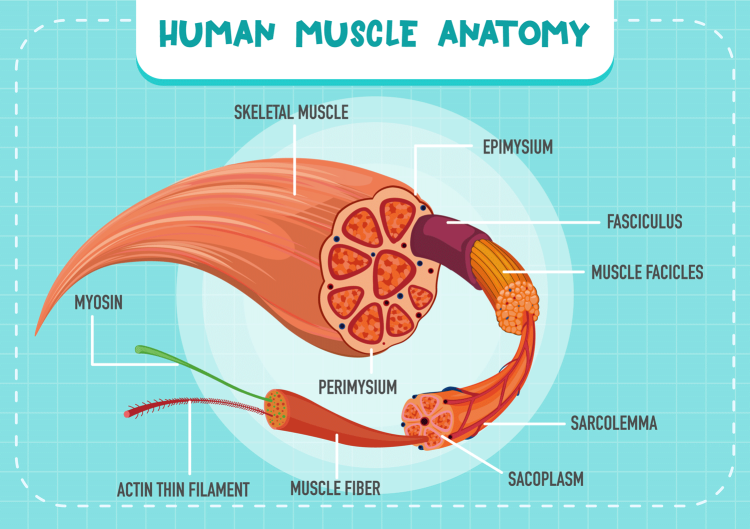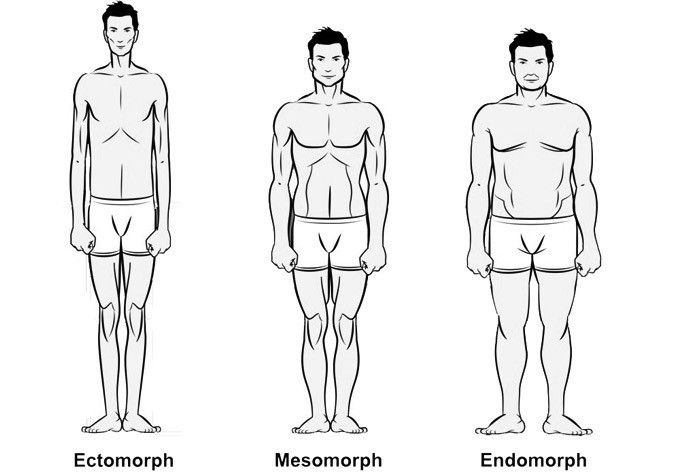If someone ever invents motivation in supplement form, they’ll become a millionaire billionaire overnight. Motivation is what drives us, and it’s often in short supply.
When your motivation levels are high, crushing your workouts and sticking to your diet is easy. You rise to every challenge and push yourself relentlessly. All your hard work is invariably rewarded with great gains and rapid progress.
However, when your motivation levels are low, even thinking about going to the gym is exhausting. And eating healthy? Forget about it!
Sadly, no supplement can turn your motivation levels up to 11, so it’s up to you to get and stay motivated.
One of the most motivating things you can do is set goals. For example, building 15 pounds of muscle, adding 20 pounds to your bench press, or dropping five percent of body fat. Having a goal gives you something to train and diet for. It provides direction and a way to measure your progress.
Knowing how long it’ll take you to achieve your goals can also be helpful. Having a finish line makes it easier to stick to your diet or workout plan. And what do you do when you reach your goal? Set a new one, of course!
So, how much muscle can the average lifter expect to gain in a month? We reveal the answer!
How Much Muscle Can You Gain in A Month?

Regardless of your age, gender, experience, or diet, regular strength training builds muscle (1). When you lift weights, do push-ups, use resistance bands, or otherwise overload your muscles, you expose them to mechanical and metabolic stress and cause muscle fiber microtrauma. Your muscles respond to these stresses by getting bigger and stronger, which is a process called hypertrophy.
However, because of various factors, the rate of muscle gain varies between individuals.
Some people are better at building muscle than others. Plus, there are external factors that determine the rate of muscle growth, such as diet and getting enough sleep. All that said, some studies have attempted to answer the question of how much muscle you can expect to gain in a month.
1. Beginner gains are real
Beginner gains might sound like bro science, but newbies tend to build muscle faster than their more experienced counterparts. This is probably because any training stimulus is novel for beginners and shocks their muscles into growing. Beginners also have “more room to grow” as they are a long way from their genetic potential for muscle growth.
As such, beginners can expect to gain 2 to 4 pounds of muscle per month (2). However, this rapid muscle growth phase doesn’t last long – 6-12 months being typical.
Beginners usually experience rapid gains regardless of the type of program they follow, even if it’s very basic. In fact, most beginners don’t need advanced bodybuilding workouts to build appreciable amounts of muscle, and a simple full-body program will suffice.
2. Experienced lifters gain muscle more slowly
Muscle gains are slower for more experienced exercisers. This is probably because experienced lifters’ muscles get used to the demands of strength training and no longer perceive it as such a threat.
If you’ve been training for a while, you may have noticed that you don’t get as sore as you used to. This is an indicator that you are now more accustomed to your workouts.
Because of this, experienced exercisers must train harder and often use workout-intensifying methods to continue stimulating muscle growth, e.g., drop sets, supersets, etc. In addition, workouts also tend to be more voluminous and complex.
Experienced exercisers can expect to gain 0.5 to 2 pounds of muscle per month (3). However, the closer you get to your genetic potential for muscle size, the slower your progress will be and the harder you’ll need to work for your gains.
Summary: While the number will be unique for you, most lifters can expect to gain between 0.5 to 4 pounds of muscle in a month, with 1-2 pounds being an acceptable average. However, there are both internal and external factors that affect your rate of muscle growth.
Unmodifiable Factors Affecting Muscle Growth
While there are plenty of things you can do to maximize muscle growth, there are several unmodifiable factors that you cannot do anything about. These include:
Age
While you can build muscle at any age, gains tend to be slower as you get older. Muscle growth rates peak during your mid-thirties and decline after that. As such, younger lifters have the potential to build muscle faster than older exercisers. However, even exercisers in their 60s and above can still build muscle, albeit more slowly.
Gender
Men have the potential to build more muscle than women and build it more quickly. Men naturally have more testosterone than women, which is an anabolic or muscle-building hormone.
Women can build appreciable levels of muscle mass but, on average, will not gain as much or develop it as quickly.
Dominant muscle fiber type
There are three types of skeletal muscle fiber – 1a, 2a, and 2b.
1a (slow twitch) fibers are made for aerobic activities and have a low potential for hypertrophy or growth.
In contrast, type 2b (fast twitch) fibers are made for force production and have much greater hypertrophic potential. The third type of fibers, 2a, are adaptable and change according to your workouts.
Your ratio of type 1a to 2b fibers depends on your genetics, and you can do nothing to alter it. That’s why some people are naturally muscular, while others make better endurance athletes.
Having a high ratio of type 2b to 1a fibers means you have a greater potential for rapid muscle growth.

Somatotype
We are all a mix of three basic somatotypes or body types. Each one has different physical characteristics, including the potential for building muscle.
Ectomorphs are naturally slim and tend not to build muscle quickly or in appreciable amounts. In contrast, mesomorphs are more muscular and build muscle mass easily and more quickly. Endomorphs are also naturally muscular but tend to accumulate fat as well as muscle.
Your somatotype mix, like your muscle fiber ratio, is determined by your genetics and helps explain why some people are easy muscle gainers while others are hard gainers who struggle to gain even a few pounds of muscle.

Related: Body Type Quiz
You can’t change any of these factors – they are the genetic hand you have been dealt. That said, whatever your age, gender, muscle fiber ratio, or somatotype, you can still build muscle if you train hard, eat right, and take care of the unmodifiable factors that affect muscle growth.
Modifiable Factors Affecting Muscle Growth
While you can’t change your age or dominant muscle fiber type, there are several modifiable factors that affect your rate of and potential for building muscle. Pay attention to the following to maximize muscle growth.
Training program
There are lots of different ways to work out, and some are better for muscle growth than others. This is because of the specificity principle, which states your body adapts to the type of training you do.
For example, if you do a lot of running, your body will adapt to make you a better runner. However, running will not improve your ability to swim as the movements are too dissimilar.
So, to build muscle, you need to follow a hypertrophy-specific training program, i.e., a bodybuilding workout. You can design your own or follow one of the hundreds in the Fitness Volt workout archives.
Once you’ve got your program, you then need to train consistently and progressively. Missing workouts doesn’t build muscle, and you need to overload your muscles with more weight and reps to keep them growing.
Then, after 6-12 weeks, you must change your program to avoid plateaus.
Nutrition and diet

The food you eat provides your body with the energy and nutrients it needs to build muscle. You must consume adequate calories, protein, carbohydrates, fats, vitamins, minerals, and fiber to build muscle, and any dietary insufficiencies could hurt your progress.
You need a calorie surplus for optimal muscle growth, meaning you must consume more calories than you expend. While you can build muscle without a surplus, your progress will be slower than it could be.
It’s beyond the scope of this article to tell you what to eat to build muscle, but you’ll find all the information you need here.
Rest and sleep
Intense, muscle-building workouts take a lot out of your body. In simple terms, your training breaks your muscles down. To get bigger and stronger, your muscles need time to recover and repair the damage caused by your workouts. Not only do they return to their original state when you rest, they supercompensate and come back better than before.
For this to happen, you must rest between workouts and get plenty of sleep.
It takes 48 to 72 hours for a muscle group to recover from training. For this reason, lifters usually follow a three-times-a-week full-body training plan, e.g., Monday, Wednesday, and Friday, or a split routine where different muscle groups are trained on different days, e.g.:
- Monday: Chest and triceps
- Tuesday: Legs
- Wednesday: Back and biceps
- Thursday: Rest
- Friday: Shoulders, arms, and abs
- Saturday: Rest
- Sunday: Rest
Regardless of how you organize your training week, you must avoid training any muscle group too often, e.g., every day. Training too frequently could hinder rather than help you in your quest to build muscle and could even lead to overtraining.
While rest between workouts is essential, sleep could be even more critical for muscle growth. Lack of sleep can undermine your energy and enthusiasm for training, and studies suggest too little sleep can lower levels of vital anabolic hormones, reducing muscle growth (4).
Most adults need 7 to 9 hours of sleep per night, but bodybuilders should aim for the upper end of this recommendation. Even occasional sleep deficits can hurt your progress.

Stress
Stress comes from various sources, including work, relationships, and finances. Excess stress has been shown to interfere with muscle growth and strength development (5).
Regardless of the origin of your stress, it triggers the “fight or flight” response, which causes a cascade of physical and chemical changes within your body, not least the release of cortisol. Cortisol is a catabolic hormone, meaning it causes muscle breakdown. Needless to say, the last thing you want when you’re trying to build muscle is more cortisol and catabolism.
While stress is impossible to eliminate completely, you can reduce your exposure and limit its impact. Strategies for minimizing the damaging effects of stress include:
- Get more sleep
- Cut back on caffeine
- Drink less alcohol
- Do not abuse medications or drugs
- Exercise moderately
- Learn how to prioritize
- Avoid perfectionism
- Organize and manage your time better
- Practice meditation and breathing exercises
- Spend time in nature
- Talk about how you’re feeling with a trusted friend
- Practice gratitude
- Avoid people and situations that trigger your stress response
- Seek professional help to deal with stress
Supplements
While you don’t need to take supplements to build muscle, there are some products that may enhance your progress. These supplements help optimize your nutritional intake, plugging any gaps in your diet.
Good options include:
- Protein powder – to make getting sufficient protein easier
- Creatine – for cell volumization, increased endurance, and faster recovery
- Pre-workout – for more energy and longer, more intense workouts
- BCAAs and EAAs – for less muscle breakdown and quicker recovery
However, it’s important to remember that no supplement will compensate for a poorly designed workout plan, incomplete diet, or too little rest and sleep. Instead, think of supplements as effort multipliers: the harder YOU work, the more THEY work.
Muscle Gain FAQs
Do you have a question regarding how much muscle you can gain in a month? No problem, because we’ve got the answers!
1. So, how much muscle can I gain in one month?
Because of the many factors involved, it’s impossible to give you a precise number of pounds you’ll gain per month. Things like your training status, body type, age, and diet influence your rate of muscle gain.
That said, studies indicate you can gain anywhere from 0.5 to 4.0 pounds per month. However, if you want to maximize your rate of muscle gain, you must pay attention to everything you do in and outside the gym, including your workout, diet, sleep, and stress.
It’s also worth noting that gaining just one pound a month for a year will have a massive impact on your appearance. That’s especially true if you drop some body fat to reveal your definition.
2. What are the best exercises for building muscle?
It’s generally accepted that the best muscle-building exercises are compound in nature, meaning they involve multiple joints and muscle groups working together.
Examples include:
- Squats
- Deadlifts
- Leg presses
- Bench presses
- Overhead presses
- Pull-ups
- Pulldowns
- Rows
These exercises allow you to lift heavy weights, putting lots of muscle-building stress through your muscles. So, while there is nothing wrong with including isolation or single-joint exercises in your workouts, the bulk of your program should consist of compound lifts.
Related: Compound vs. Isolation Exercises
3. I’m not gaining any muscle – what gives?
Not gaining muscle can be so frustrating that it makes some people give up training altogether. After all, what’s the point if what you are doing is not working? Here are some of the reasons you may be stuck in a muscle-building rut, plus the solutions to your problems.
- You aren’t eating enough – make sure you have a 500-calorie-per-day surplus. If your weight is stuck, you probably need to eat more. Eat more if you still aren’t gaining weight.
- You aren’t training hard enough – building muscle involves taking at least some of your sets to failure. Push yourself harder, and don’t leave more than a rep or two in the tank.
- You are training too hard – if your workouts outpace your ability to recover, muscle growth will stall. Make sure your program includes rest days and that it matches your fitness and experience. Beginners should avoid high-volume workouts, which can hurt more than help you build muscle.
- You’re skipping too many workouts – missed workouts do not build muscle. Instead, your training must be consistent if you want to transform your body by building muscle. Find a program you can stick to religiously, as even the best workout won’t work if you don’t do it.
- You aren’t getting enough sleep – go to bed eight hours before you plan on getting up. Do this every night, and not just at the weekend.
- Cut down on cardio – your body is very bad at adapting to multiple stressors. If you are serious about building muscle, you’ll need to put cardio on the back burner for a while. You can still do 20-30 minutes 2-3 times per week, but more than that could harm your progress.
- You aren’t consuming enough protein – protein contains the building blocks of muscle tissue: amino acids. Consume plenty of meat, fish, eggs, dairy, legumes, nuts, seeds, etc., to ensure you’re getting enough. Insufficient protein will undermine your progress.
4. How much protein do I need to build muscle?
It’s generally accepted that you need to consume about one gram of protein per pound of body weight to build muscle. This may be a little more than required, but it ensures you are never in a protein deficit.
Alternatively, you can personalize your protein intake with our easy-to-use protein calculator.
Divide your protein intake throughout the day to ensure your muscles receive a steady stream of amino acids.
5. Do steroids and other bodybuilding drugs help you build muscle faster?
They certainly do! Steroids and other bodybuilding drugs increase protein synthesis, which is one of the mechanisms of muscle growth. They also enhance recovery, so you can train harder and longer.
Drugs used in bodybuilding include exogenous testosterone, human growth hormone, and insulin.
While these substances will undoubtedly speed up muscle growth, they can also harm your health and can even contribute to premature death. Also, when you stop taking them, you will quickly lose much of your chemically-enhanced muscle mass.
Closing Thoughts
While we can’t say precisely how much muscle you can gain in a month, most people should be able to add 0.5 to 4.0 pounds to their frames in that time.
The actual amount of muscle you can build in 30 days depends on several modifiable and unmodifiable factors, including your diet, training program, age, gender, body type, and experience.
However, while we can’t tell you how much muscle you can build in a month, we can tell you what will harm your progress. Too little sleep, insufficient protein, and too many easy workouts will all undermine your progress.
So, get all your training, diet, and recovery ducks in a row and see just how much muscle you can build in a month. And then, next month, do it all again! Keep at it until you have built the body of your dreams.
References:
- Roth SM, Ivey FM, Martel GF, Lemmer JT, Hurlbut DE, Siegel EL, Metter EJ, Fleg JL, Fozard JL, Kostek MC, Wernick DM, Hurley BF. Muscle size responses to strength training in young and older men and women. J Am Geriatr Soc. 2001 Nov;49(11):1428-33. doi: 10.1046/j.1532-5415.2001.4911233.x. PMID: 11890579. https://pubmed.ncbi.nlm.nih.gov/11890579/
- Hartman JW, Tang JE, Wilkinson SB, Tarnopolsky MA, Lawrence RL, Fullerton AV, Phillips SM. Consumption of fat-free fluid milk after resistance exercise promotes greater lean mass accretion than does consumption of soy or carbohydrate in young, novice, male weightlifters. Am J Clin Nutr. 2007 Aug;86(2):373-81. doi: 10.1093/ajcn/86.2.373. PMID: 17684208. https://pubmed.ncbi.nlm.nih.gov/17684208/
- Arden NK, Spector TD. Genetic influences on muscle strength, lean body mass, and bone mineral density: a twin study. J Bone Miner Res. 1997 Dec;12(12):2076-81. doi: 10.1359/jbmr.1997.12.12.2076. PMID: 9421240. https://pubmed.ncbi.nlm.nih.gov/9421240/
- Dattilo M, Antunes HK, Medeiros A, Mônico Neto M, Souza HS, Tufik S, de Mello MT. Sleep and muscle recovery: endocrinological and molecular basis for a new and promising hypothesis. Med Hypotheses. 2011 Aug;77(2):220-2. doi: 10.1016/j.mehy.2011.04.017. Epub 2011 May 7. PMID: 21550729. https://pubmed.ncbi.nlm.nih.gov/21550729/
- Bartholomew JB, Stults-Kolehmainen MA, Elrod CC, Todd JS. Strength gains after resistance training: the effect of stressful, negative life events. J Strength Cond Res. 2008 Jul;22(4):1215-21. doi: 10.1519/JSC.0b013e318173d0bf. PMID: 18545186. https://pubmed.ncbi.nlm.nih.gov/18545186/
